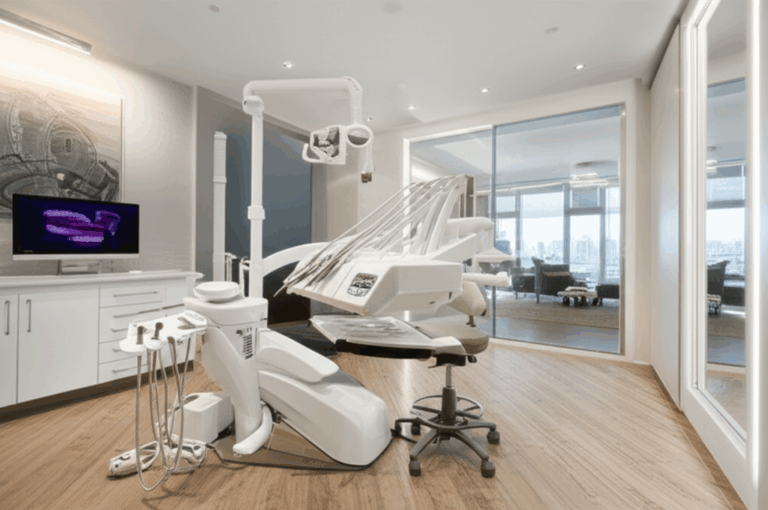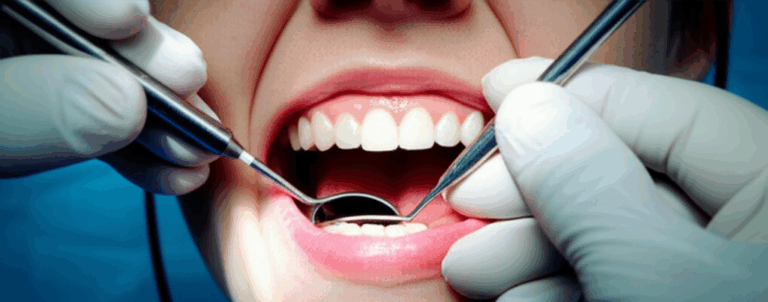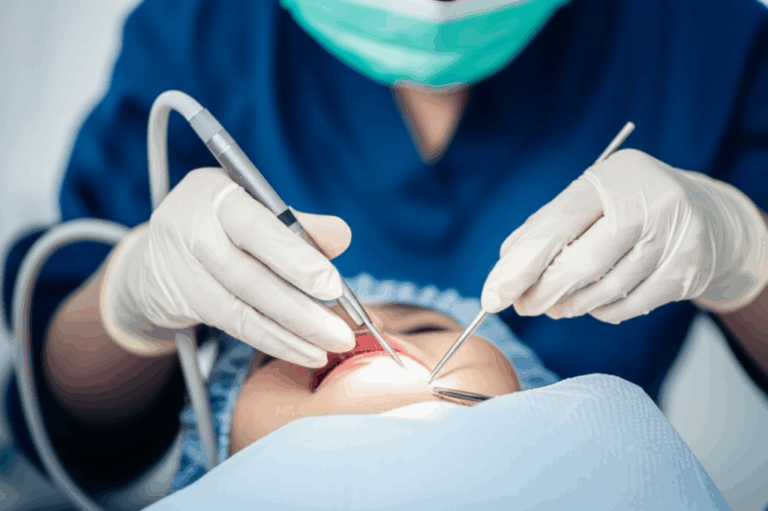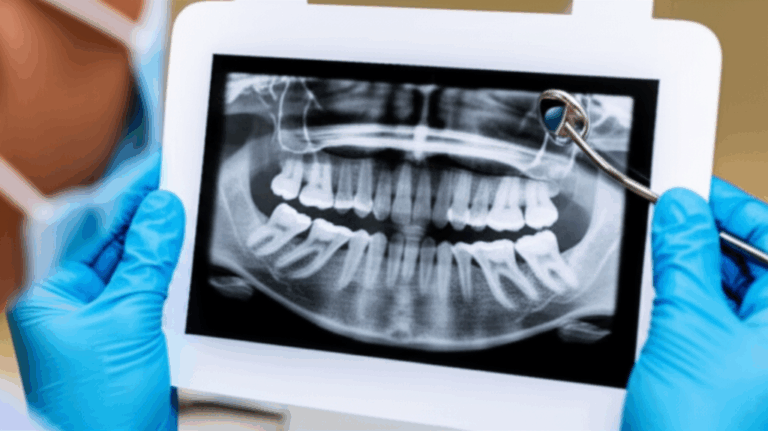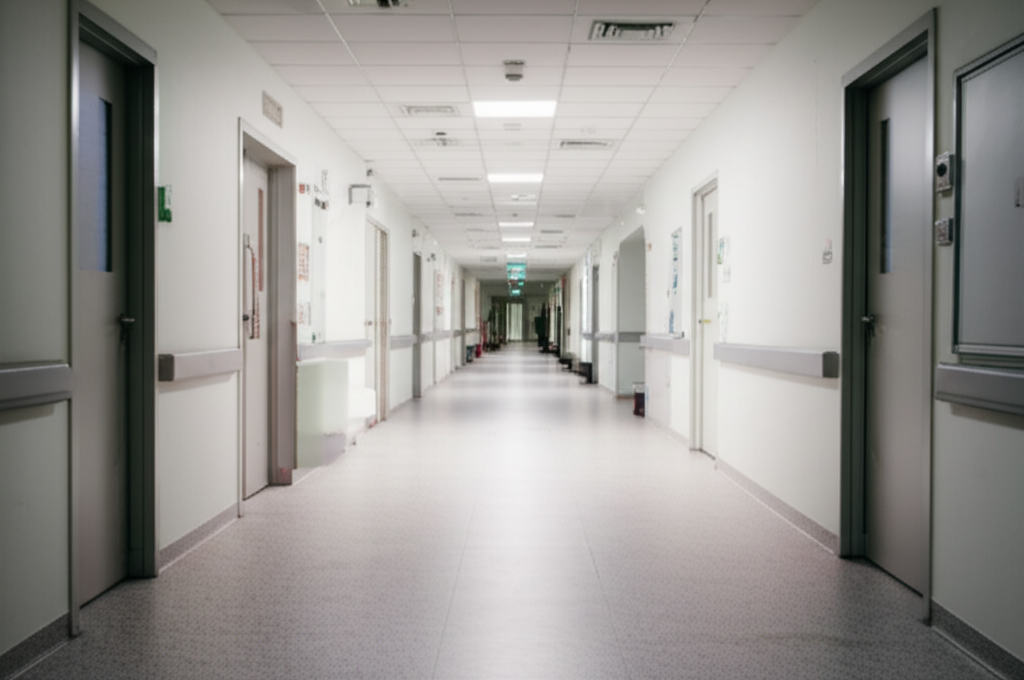
Why Don’t Hospitals Have Dentists? Understanding the Healthcare Divide and Your Options
Ever wondered, “Why can I get help for a broken bone at the hospital, but not a broken tooth?” You’re not alone. This article explains why dentists and hospitals are so often separate, what you can do in a dental emergency, and how this split affects your health. Discover how this divide began, what hospitals can actually do for dental problems, and the steps you should take to keep both your mouth and body healthy. It’s a story you don’t want to miss.
Table of Contents
Why Is There a Divide Between Dental and Medical Care?
You’re not the first person to wonder, “Why can’t I just see a dentist at a hospital if my tooth is really hurting?” Here’s the problem: your body doesn’t care if the pain is in your jaw or your knee—it all hurts.
But right now, medical and dental care are as separate as oil and water. This split leads to confusion when you need quick help.
The real reason: This split isn’t just about which body part hurts. It’s built into our whole healthcare system—from the way doctors and dentists are trained, to how hospitals are set up, to how insurance pays for care.
When your needs aren’t met, you might end up going from hospital emergency rooms to dental offices without real help. That’s frustrating, and it can slow down your real treatment.
The answer? Find out why the problem started and know what to do—before you have an emergency.
How Did This Dental-Medical Split Begin?
It might sound funny today, but medicine and dentistry started as two separate things.
A long time ago, people didn’t think tooth problems were linked to the rest of the body. Doctors focused on sicknesses like fever and fixing broken bones. Dentists, meanwhile, just fixed or pulled bad teeth.
Different Schooling, Different Rules
- Doctors and dentists go to different schools.
- Dentists get degrees like DDS or DMD. Doctors get MD or DO.
- License rules and boards are not the same.
So, doctors and dentists didn’t learn together, work together, or even talk about health the same way. Over time, two separate systems slowly grew—right down to the kind of insurance you use.
Think about it: Would you ask your plumber to fix your lights? That’s how hospitals often saw dentists. Things are slowly changing, but it takes a while.
What Makes Dental Care So Specialized?
Look around your dentist’s office. Notice anything?
There are special chairs, bright lights, and weird tools you never see in a regular hospital room. That’s because dental care isn’t just about emergencies—it’s mostly about stopping problems before they start.
Special Tools and Know-How
- Dentists have their own X-rays like panoramic or CBCT machines, not the usual ones at hospitals.
- They do careful work in tiny spots.
- Most dental work isn’t for life-or-death issues. It’s about cleanings, fixing cavities, and helping teeth last.
Dentists Focus on Mouth and Jaw
Hospitals, for the most part, focus on really bad injuries and sickness. Their rooms aren’t set up for dental work like root canals or fillings.
So it’s no surprise most hospitals just can’t handle normal dental work as easily as your neighborhood china dental lab.
Why Don’t Hospitals Treat Common Dental Emergencies?
Picture a busy emergency room. Someone shows up with chest pain. Another with a broken leg. Then you walk in holding your cheek, groaning from a toothache.
Problem: The ER doctor doesn’t have the tools or practice to pull a tooth, fill a cavity, or do a root canal.
Worse: Emergency rooms are always busy and doctors aren’t trained for dental problems. You wait, only to get pain medicine and maybe antibiotics.
When you’re hurting, that’s not enough. If you’ve left the hospital with a sore tooth and just a bill and some pills, you know it feels bad.
What to do: Knowing who to call and where to go ahead of time can save you hours—and lots of money.
What Dental Services DO Hospitals Offer?
You may be surprised that some hospitals do have some dental services. But they are not for everyone.
1. Oral and Maxillofacial Surgery (OMFS)
Some hospitals have mouth surgeons. They handle:
- Big accidents that break jaws or face bones
- Bad infections that can spread
- Removing tumors or lumps from your mouth
- Mouth cancer care
2. Care for Special Patients
People who can’t have dental care in normal offices—like those with severe disabilities, some kids, or people with health problems—can sometimes get help at a hospital, especially if they need to be asleep for the work.
3. Teaching Hospitals and Large Medical Centers
Places that train new doctors and dentists (like universities) sometimes have whole dental departments. They train students, do research, and treat tough cases.
So, while most hospitals can’t give you a filling, they can help with really hard dental problems if your case is bad or tricky.
How Does Insurance Play a Role?
Here’s another big reason for the split: insurance.
Dental insurance and medical insurance are different. Ever noticed you have one card for the doctor and another for the dentist? That’s on purpose.
Different Systems, Different Bills
- Dental plans pay for cleanings, fillings, pulling teeth—but often have a low yearly limit.
- Medical plans don’t usually pay for fillings, crowns, or cleanings.
- Hospitals have one way of billing (with special codes). Dentists use another.
This makes hospitals think twice about hiring dentists or buying dental tools—they just can’t get paid the same way.
Sometimes the costs are so high it’s not worth it for the hospital—especially since most dental problems aren’t emergencies.
If you need a special solution like crowns or bridges, a crown and bridge lab can make what your dentist asks for, and help keep costs simple.
Is Fragmented Care a Real Problem?
Let’s look at some real info:
| Issue | Statistic |
|---|---|
| ER visits for dental pain (USA, yearly) | Over 2.2 million visits |
| Average ER dental bill | About $749 |
| Typical dental office visit | $150-$300 |
| Percentage of ERs with a dentist on staff | Less than 10% |
Problem: People skip the dentist because of money or no insurance.
They wait until pain is too much.
They end up at the ER—where usually only an easy fix is given but not the real solution.
Worse: The ER gets busy. Doctors spend time on things that could have been stopped. Patients leave with big bills and pain that comes back.
What helps: Going to the dentist regularly saves money, time, and pain. If you want to protect your teeth, you can talk to people who use new technology—like a digital dental lab—for both preventive and tooth repair care.
What Happens If You Go to the ER with Tooth Pain?
Here’s what can happen:
- The ER might give you pain medicine or antibiotics if you have an infection.
- They usually can’t pull a tooth, fill it, or help with root problems.
- They’ll tell you to see a dentist as soon as you can.
Main advice: Only go to the ER for dental problems if:
- Your face is swelling a lot (could mean a bad infection)
- You can’t breathe or swallow well
- You have bleeding that won’t stop
If not, try to find an emergency dental clinic or call your dentist.
Are There Hospitals with Dentists?
Yes, but not many!
Some examples:
- Big university or teaching hospitals may have dental departments.
- Some children’s hospitals do dental surgery for kids who need to sleep (with anesthesia) for basic work.
- Veterans’ hospitals (VA) offer dental care to some veterans.
In these, you might get anything from fillings to dentures, especially if you can’t be treated anywhere else.
People with special needs—like someone with heart problems who needs a root canal—may get dental help in a hospital. For example, those needing special crowns or bridges might have things made by a top dental ceramics lab and get them placed in the hospital.
What’s the Future for Integrated Healthcare?
We are beginning to see that mouth health IS total health. Doctors see that gum disease is linked with diabetes, heart trouble, and strokes.
Working together:
Some clinics now have both doctors and dentists under one roof. This is called “co-located care.”
People are starting to:
- Make it easier for ERs to send you to a dentist
- Train both doctors and dentists to think about the whole patient—not just one part
- Try to make insurance plans that cover both kinds of care
There’s hope. If more hospitals and clinics join forces, you’ll get better care—and fewer long, toothache nights.
FAQs
Q: Can I get my tooth pulled at the hospital?
A: Most hospitals can’t pull teeth unless it’s a real emergency or for a surgery. They’ll usually send you to a dentist.
Q: Will medical insurance cover my dental problem in the ER?
A: Usually not. Medical insurance sometimes pays for ER care for bad infections or injuries, but not for normal dental work.
Q: Are dentists doctors?
A: Dentists are doctors of dental medicine or surgery (DDS/DMD), not regular medical doctors (MD). They get different training but are experts in teeth, mouth, and jaw care.
Q: What should I do in a dental emergency?
A: Call your dentist first, or look for an urgent care dental clinic. Only go to the ER for swelling that blocks your breathing, trouble swallowing, or bleeding you can’t stop.
Q: Is anyone working to combine dental and medical care?
A: Yes! Some community health clinics now offer both together. Teaching hospitals sometimes do too, and someday more insurance plans might combine both.
Summary: Key Points to Remember
- Dental and medical care are separate because of old history, schooling, and insurance.
- Most hospitals are not set up for dental problems, unless it’s a really bad injury or big infection.
- Regular, preventive dental care keeps you out of the ER and helps you stay healthy all over.
- Insurance rules make joining up tricky—most dental care isn’t paid for at hospitals.
- Some big hospitals, VA centers, and teaching medical centers do offer dental care, mostly for special reasons.
- If your teeth hurt, try a dental clinic first—the hospital ER is for emergencies only.
- In the future, more clinics will bring medical and dental care together so you can be healthier.
Be smart, look after your smile, and remember: your mouth is just as important as the rest of your body! If you need special care, ask your dentist if they use a quality zirconia lab to get your teeth the best help possible.

